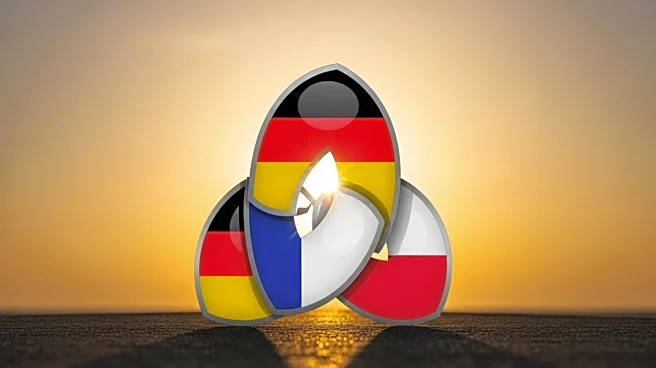What's Happening?
Germany, France, and Poland are pushing for stronger European integration and closer defense ties with Ukraine. This initiative includes potentially mobilizing frozen Russian assets to support Ukraine, as discussed in a recent trilateral meeting in Warsaw. The three nations' foreign ministers emphasized the need for increased military support for Ukraine, including more air defense systems, until a 'just and lasting peace in Europe' is achieved. They also support the rapid integration of Ukraine into the European defense technological and industrial base. Additionally, the countries are backing the EU's proposed 19th sanctions package, which targets companies aiding Russia's war efforts and proposes a full embargo on Russian liquefied natural gas.
Why It's Important?
The move signifies a significant shift in European defense policy, driven by Russia's ongoing military actions in Ukraine. By advocating for deeper integration and increased military support, these countries aim to strengthen Ukraine's defense capabilities and deter further Russian aggression. The potential use of frozen Russian assets for Ukraine's support highlights a strategic financial maneuver to hold Russia accountable. This development could lead to increased tensions between the EU and Russia, impacting geopolitical stability and economic relations. The initiative also underscores the EU's commitment to collective security and defense, potentially reshaping the region's defense landscape.
What's Next?
The proposed actions, including the sanctions package and defense integration, will require approval and implementation by the EU. The success of these measures will depend on the cooperation of EU member states and their willingness to enforce sanctions and support Ukraine. The situation may prompt reactions from Russia, potentially escalating tensions. Additionally, the integration of Ukraine into the EU's defense framework could face challenges, including political and logistical hurdles. The outcome of these efforts will significantly influence the EU's role in global security and its relationship with both Ukraine and Russia.









